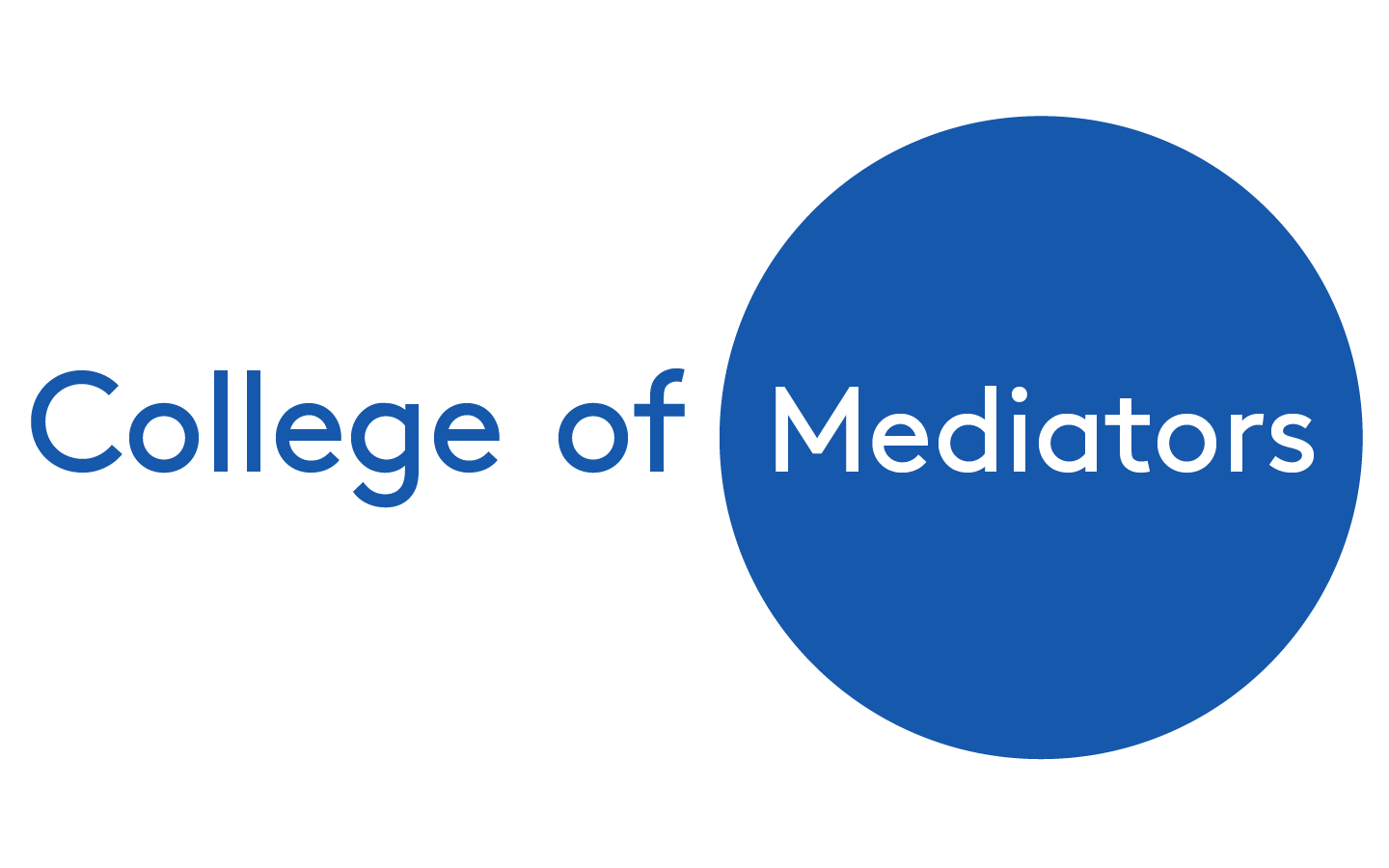COM Guidance On Online Training
COM Guidance On Online Training

Guidance on considering applications for Foundation mediation training, SEND training and 3-day CIM courses where all or part of the training is delivered online.
The College of Mediators recognises that since 2020 many trainers have transitioned to all or part online training. The College of Mediators also recognises that many more mediation trainers have become familiar with online ways of working, the mediation community in general is more comfortable working online and that mediators starting out in the profession now are likely to carry out at least some of their mediations online.
The College of Mediators acknowledges that training mechanisms have changed significantly since 2020 and that we want to continue supporting training providers to provide training in a way that works best for them and their participants. The College’s preferred training method, wherever possible, is at the least a hybrid model, with online and in person elements, however we trust our approved trainers to decide the best model for their organisation and to demonstrate how, if the course is completely online, they are supporting trainees in an online environment and to provide evidence of trainee evaluation and feedback.
There are also training providers who are already registered with the College, who are delivering online content and whose courses are not yet due for re-approval. These providers can continue delivering training online without submitting further documentation to the College. Any new information about the format of courses and any online elements will be submitted at the point of re-approval.
For Foundation Family Mediation Courses:
a. That the Standards Framework already allows for half of the 60 hours of the required contact time to ‘be substituted by structured on-line or distance learning supported by adequate one-to-one or small group tutor support’ (section 5, Part 2)
b. As a general rule, the College of Mediators considers that all Foundation Family mediation courses should therefore be able to deliver all but 30 hours of their course remotely as long as the course provider can demonstrate that they have made changes to ensure the effective delivery of the remote elements of the course and that the existing content of the approved course will still be delivered.
1. For other Foundation mediation courses:
a. That length of an approved foundation course must provide sufficient contact and non-contact time for the stated learning outcomes or course objectives to be delivered. The current course length is a minimum of 40 hours of which 35 is contact time between trainers and the training group.
b. That the Foundation course can be delivered completely in person, as a hybrid, or completely online, as long as the course provider can demonstrate that they have made changes to ensure the effective delivery of the course and that the existing content of the approved course will still be delivered.
2. SEND Mediation courses
a. Approved SEND mediation training courses must be for a minimum of 12 hours’ delivery and are delivered by a recognised provider of the College of Mediators or the Civil Mediation Council and the taught programme is followed by a period of professional practice training, after which a certificate will be issued.
b. It is acceptable that SEND training providers deliver courses in person, as a hybrid or completely online. Online SEND mediation is now offered as standard by Local Authorities. During the supported practice stage of the training process all observations are completed online.
3. For 3-day CIM Courses
a. As a general rule, the College of Mediators considers that all 3-day CIM courses should be able to be delivered online, as long as providers can show that they have considered and put in place measures to ensure the effective delivery of the course in this way and that the existing content of the approved course will still be delivered.
b. That the provider will take feedback from both its trainers and course delegates, after each online course, using this to review its course and make improvements where necessary.
4. Delivering the remote elements of the course
Where courses have an online element the training provider must be able to demonstrate:
a. That they have made changes to ensure the effective delivery of all of the remote parts of the course, including role play and assessment elements.
b. That trainers are adept at delivering relevant elements of the course online.
c. That they have adapted the online course to allow for teaching of remote mediation as well as in-person mediation to be taught (given that the trainee will not receive any further training after passing the course and before mediating in person, as well as remotely). The panel will take into account whether the course will be extended to allow time to deliver additional content.
And that the provider has taken to account:
d. The technology needed to deliver the course remotely, including whether different technology is need for different parts of the course;
e. The need for trainers to have sufficient understanding of the technology to be able to deliver the relevant parts of the course online;
f. Adjustments to the timing of course delivery, taking in to account that trainees’ online attention span is shorter than when attending in person; and
g. Any additional skills/training needed for those delivering the course in order to ensure the online delivery of the course is effective
h. Whether the provider will take feedback from both its trainers and course delegates, after each online course, using this to review its course and make improvements where necessary.
5. Assessments of Mediators once they are Trained and whether online is acceptable.
All training courses are required to include sufficient assessment and this is evaluated as part of the College of Mediators training approval process. It is expected that this assessment will be in place regardless of whether the course is delivered online or in person.
Mediators who complete assessments online only, should, where possible, have support to complete their first in person mediation, post course, with support from a suitably qualified person/assessor.
Mediators who complete assessments in person only, should, where possible, have support to complete their online mediation, post course, with support from a suitably qualified person/assessor.
